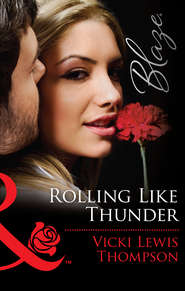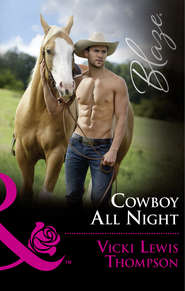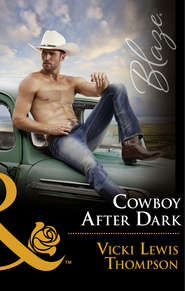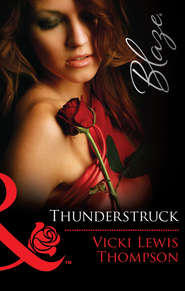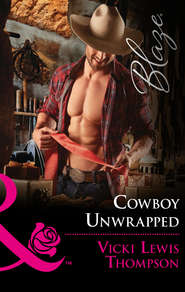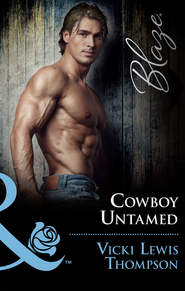По всем вопросам обращайтесь на: info@litportal.ru
(©) 2003-2025.
✖
That's My Baby!
Автор
Год написания книги
2018
Настройки чтения
Размер шрифта
Высота строк
Поля
“Yeah, right. You probably think it’s Elvis.”
“I know who’s in the cab. I need to talk to him.”
“Why? Who is it?”
Many times as a child Jessica had watched her mother deal with questions she didn’t want to answer. Her mother would stiffen her spine and speak in what Jessica thought of as her to-the-manner-born voice. Jessica had never tried the technique, but she decided to give it a whirl.
Straightening in her seat, she lifted her chin and said, “I don’t believe that’s any of your business.”
Her effort seemed lost on the cabbie. “It sure as hell is my business! I’m transportin’ you in my cab! And I’d appreciate it if you’d lay off the high-and-mighty tone, unless you’re about to tell me you’re kissing cousins to the Rockefellers, which I sincerely doubt.”
Close, Jessica thought. But apparently she didn’t have the presence to carry it off. Then again, she did look like a bag lady. Maybe her mother’s success in turning aside impertinent questions had as much to do with her elegant clothes and her position in society as her tone of voice. Yet in her heart of hearts, Jessica believed that even dressed in rags with no fortune to command, her mother would make people do her bidding. She’d certainly kept her husband and daughter in line for years.
Jessica sighed. Barring a personality transplant, she’d need to give the cabbie some explanation for why they were tailing another cab into the city, or she was liable to be dumped by the side of the road. “The man in the other cab is an old boyfriend,” she said. “I’ve changed since we last met, and he didn’t recognize me, but I really need to talk to him.”
“Maybe he doesn’t want to talk to you.”
“Maybe not,” she acknowledged, “but I have some information he needs to hear.”
“Aw, jeez, I know where this is goin’. We’re talkin’ about the patter of little feet, right?”
Jessica couldn’t think of anything but the truth. “You might say that.”
“Poor bastard. But them that plays, pays. I learned that one the hard way. Do you have any idea where he’s goin’?”
“To a hotel in the city, I imagine.”
The cabbie heaved a sigh. “All right, then. I’ll catch him for ya.”
“Thank you.” Jessica settled back against the seat as the sparkling skyscrapers of Manhattan hovered ever nearer. Habit caused her to pick out the Franklin Publishing Tower dangling between sky and earth like one of her mother’s diamond chokers.
She spoke only briefly with her parents these days, stopping long enough in her flight to put in a quick call every couple of weeks. They thought she was “seeing the country.” None of her conversations with them in the past few years had been significant, anyway, and she hadn’t seen them since she’d left home.
They didn’t approve of her decision to abandon their world and try to create her own life, and their attitude toward her had been curt ever since she’d moved to Colorado. Her current predicament, having a child out of wedlock and a stalker on her trail, would only confirm what they’d always assumed—that on her own she’d make a mess of things. She didn’t want to give them a chance to say we told you so.
“How far along are you?” the cabbie asked.
Jessica blinked and tried to figure out what he meant.
“When’s the baby due?” he asked, clarifying his question.
“I, um, already had her,” she said. “I left her with friends.”
“Wait a doggone minute! You already had the kid, and you’re just now nailing the father? Are you sure he’s the father and this isn’t some kind of shakedown?”
“I’m sure. He’s been out of the country. I couldn’t contact him before.”
The cabbie’s gaze flicked into the rearview mirror. “Okay, I’m gonna believe you. The reason is that your voice sounded strong when you said that. After all these years of drivin’ cab, I can tell when a passenger’s blowin’ smoke. You can hear it in their voice. So what did you name her?”
“Elizabeth.” Speaking the name brought a lump to Jessica’s throat and she wondered if she’d cry when she talked to Nat about the baby. She hoped she wouldn’t cry. She didn’t want his pity, only his support.
“Pretty name. I got two kids. Both boys. Rory and Jonathan. I had to marry my wife on account of Rory, but it’s worked out okay.”
Worked out okay. The lukewarm comment made Jessica shiver. She’d never in a million years want a marriage that worked out okay. Even if Nat had a burst of responsibility and proposed marriage to give Elizabeth two parents, Jessica wouldn’t agree. But Nat wouldn’t propose. Marriage scared him to death. The only thing that scared him worse was fatherhood.
“Your guy doesn’t seem to be goin’ into Midtown, like you thought,” the cabbie said. “Looks like we’re headed for the Hudson Parkway. Still want me to follow him?”
“Absolutely.” The route made her nervous, though. She knew it only too well. But it was only a coincidence that the first time she set foot back in New York since leaving her parents’ estate, Nat would lead her back in the direction of the Hudson Valley, straight toward Franklin Hall.
“Like I said, I hope you got money,” the driver said. “For all we know, the guy’s headed for Vermont to see the leaves.”
“I doubt it.”
“You ever seen the leaves?”
“Yes.” She’d taken a trip through Vermont in the limo with her parents the October she turned nine. The long black car had seemed to take up far too much space on the narrow back roads, and it had looked ridiculous sitting parked on the village square in one of the hamlets where’d they’d stopped for hot cider.
She’d been aware of people staring, but she’d grown used to that. She’d ignored them and gazed longingly at three children playing in a yard full of red, yellow and orange leaves. They’d rake them into piles and then dive into them, scattering the leaves in an explosion of color before raking them up and starting all over. Their laughter had made her feel so completely alone.
Her memory clicked over to a crisp fall day in Aspen. Nat hadn’t really understood why she’d begged him to help her gather leaves into piles and jump with her right into the middle of them. But he’d helped her do it, anyway. The lonely child within her had loved every minute, and she’d loved Nat for being such a good sport about it.
“My wife’s after me to take her and the kids up there next weekend,” the cabdriver said, breaking into her reverie, “but I told her I do enough driving during the week. Besides that, it’s bumper to bumper on those little back roads. The word’s out about those leaves.”
“You should take her, anyway,” Jessica said, suddenly feeling sorry for the woman who had no passion in her life. “Get a sitter for the boys. There are some nice bed-and-breakfast places up there. It’s a good spot for couples.”
“You mean couples with bucks. Those cozy little inns aren’t cheap. My wife would probably rather have a new couch.”
“Ask her. I’ll bet she’d rather have the weekend.”
“I’ll bet she’d rather have the couch. You’re gonna have that for a good ten years or more. The weekend’s over and done, and you’ve got nothin’.”
“You have memories!” Jessica protested, battling now for this unknown woman’s right to be romanced, at least once in her life. “They’re worth more than anything.”
“I don’t know. You can’t sit on memories. Listen, we’re headed out of the city entirely. You sure you want to keep going? This is turning into an expensive ride.”
“That’s okay. Keep going.” As they left Manhattan behind, she could hardly believe the direction they were taking. They’d left the Hudson Parkway to follow the familiar route that wound along beside the river. If they kept going like this, they’d drive right past her parents’ estate.
“High-priced real estate up here,” the driver said. “But what I always think about, especially this time of year, is that story about the Headless Horseman. Sleepy Hollow, and all that. That story scared the daylights out of me when I was a kid.”
“Me, too.” She hadn’t thought about it before, but now she realized that when she allowed herself to think about the person stalking her, she felt sort of like Ichabod Crane trying to escape the Headless Horseman.
“My boys love that story, but kids today don’t scare so easy, I guess.”
“I guess.” Jessica wondered if Elizabeth would grow up braver than she was. Her self-image of strong independence grew shakier the closer they came to Franklin Hall.
Less than a mile from her parents’ gate she told the driver to slow down. At last she’d allowed her instincts to take over, and they had told her exactly where Nat was going. By the time the left-turn signal on the cab ahead of them flashed in the darkness, she was prepared for it. For reasons she couldn’t begin to imagine, Nat was going to Franklin Hall.
“Pull over under that tree,” she told the cabbie. “I’ll get out here.”






